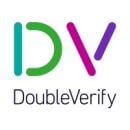
Although 2020 was a tumultuous year in many ways, these 14 NYC tech startups managed to weather the storm rather well, raking in a total of more than $3.3 billion in new funding.
Sidewalk Infrastructure Partners took first place, announcing a whopping $400 million round in May. Moving down the list, five companies tied for ninth place, with each of the companies raking in $200 million each.
Read on to learn more about the largest NYC tech funding rounds of 2020. Now, onward to 2021.
#9 (tied). $200 million, November 10
The online mortgage lender claims to have seen a significant growth in loan volume over the past year, pointing to a larger shift toward fintech that’s been spurred on by the pandemic. Better.com says it plans to use this latest investment to build its technology even more and grow its team.
#9 (tied). $200 million, September 9
Sprinklr helps businesses interact with their customers over social media, and offers tools to beef up their marketing, advertising and research efforts. This fresh funding, plus the $150 million in convertible securities obtained from Sixth Street Growth, brings Sprinklr’s valuation to nearly $3 billion.
#9 (tied). $200 million, August 12
Founded in 2014, Trumid helps users negotiate and execute trade deals electronically. The company claims to have experienced “extraordinary growth” lately, with volumes up nearly 500 percent in 2020 alone. This Series E brought the bond-trading startup’s total valuation to more than $1 billion.
#9 (tied). $200 million, March 30
The ride-hailing startup allows passengers traveling in the same direction to carpool together, providing cheap rides that reduce urban congestion. Like Uber and Lyft, Via suspended shared rides in big cities amid the COVID-19 pandemic, but provided emergency transit of goods and personnel. The company’s co-founders said part of this Series E would be used to continue and expand on those efforts.
#9 (tied). $200 million, July 27
The online healthcare provider says, in just over a year, its valuation tripled to $1.5 billion. To meet a surge in demand brought on by the pandemic, Ro plans to use this Series C to grow its team. “The pandemic has showcased that now, more than ever, telehealth can serve as a complement to in-person care,” Ro’s co-founder and CPO Saman Rahmanian told Built In.
#8. $207 million, October 6
Founded in 2017, Unqork made history by developing the first completely visual, no-code application platform, allowing users to build complex software applications with minimal custom code. This latest funding round brings the company’s total valuation to $2 billion and will be used to form new partnerships, ramp up its international presence and grow its team.
#7. $225 million, July 13
UiPath’s robotic process automation technology takes over rote tasks like invoicing or claims processing so employees can focus on more important aspects of their jobs. A company representative told Built In that this fresh funding will be used to continue its “A Robot for Every Person” initiative, accelerate its cloud-based delivery and expand its platform. The company also plans to grow its team, “doubling down” on filling R&D and engineering roles.
#6. $230 million, September 23
Attentive’s marketing and analytics software helps companies like Urban Outfitters and Jack in the Box create customized messages to their customers over text, complete with things like videos and GIFs. This Series E brought the company’s valuation up to unicorn status at more than $2 billion. The money will be used to grow its engineering, product and design teams.
#5. $245 million, August 27
Warby Parker has been disrupting the decidedly analog eyewear industry with its technology for more than a decade, offering things like telehealth services to an AR-enabled feature that lets users “try on” glasses with their phones. This fresh funding round is a combination of a $125 million Series F and a $120 million Series G, bringing the company’s total valuation to $3 billion.
#4. $285 million, January 8
ClassPass helps users find fitness classes and gyms in their area. Founder Payal Kadakia says she came up with the idea in 2010 when had a hard time booking an afterwork dance class in NYC. “I realized that this challenge was also an opportunity,” she told Built In. “I made it my mission to create a seamless, motivating platform that would help people get active.” Now, the company is valued at more than $1 billion.
#3. $350 million, October 28
DoubleVerify helps companies with their digital marketing approach, providing them with the data they need to ensure their campaigns run smoothly and reach the right people. The company says most of this fresh funding will be used to purchase shares from existing shareholders — a stock buyback that gives DoubleVerify more ownership of the business. The money will also be used to expand the company into new areas like media performance optimization and connected TV analytics.
#2. $365 million, June 26 and December 17
The digital health insurer brought in two big funding rounds in 2020 — $225 million in June and then another $140 million in December. The company also made headlines this year when it reportedly partnered with the federal government to build a coronavirus testing website, although the project was quickly scrapped amid concerns over conflicts of interest (Oscar’s co-founders include White House advisor Jared Kushner’s brother). Now, the company has its own COVID-19 resources page and is valued at more than $1.5 billion.
#1. $400 million, May 7
Founded by former Google executives in 2019, SIP has become a big name in the smart cities space, taking a hybrid approach to solving big, industry-sector sized issues like digital infrastructure, energy, waste and transportation. At the time of this round, the company had plans to build a facility in the Midwest where it could recycle cast-off plastic from nearby plants, and sell the plastic yielded to businesses like Coca-Cola and Procter & Gamble.
Funding data is compiled from SEC filings, press releases, confirmed news reports and other public databases. Funding includes venture capital and private equity announced during 2020, but excludes acquisitions and debt financing in most cases.















